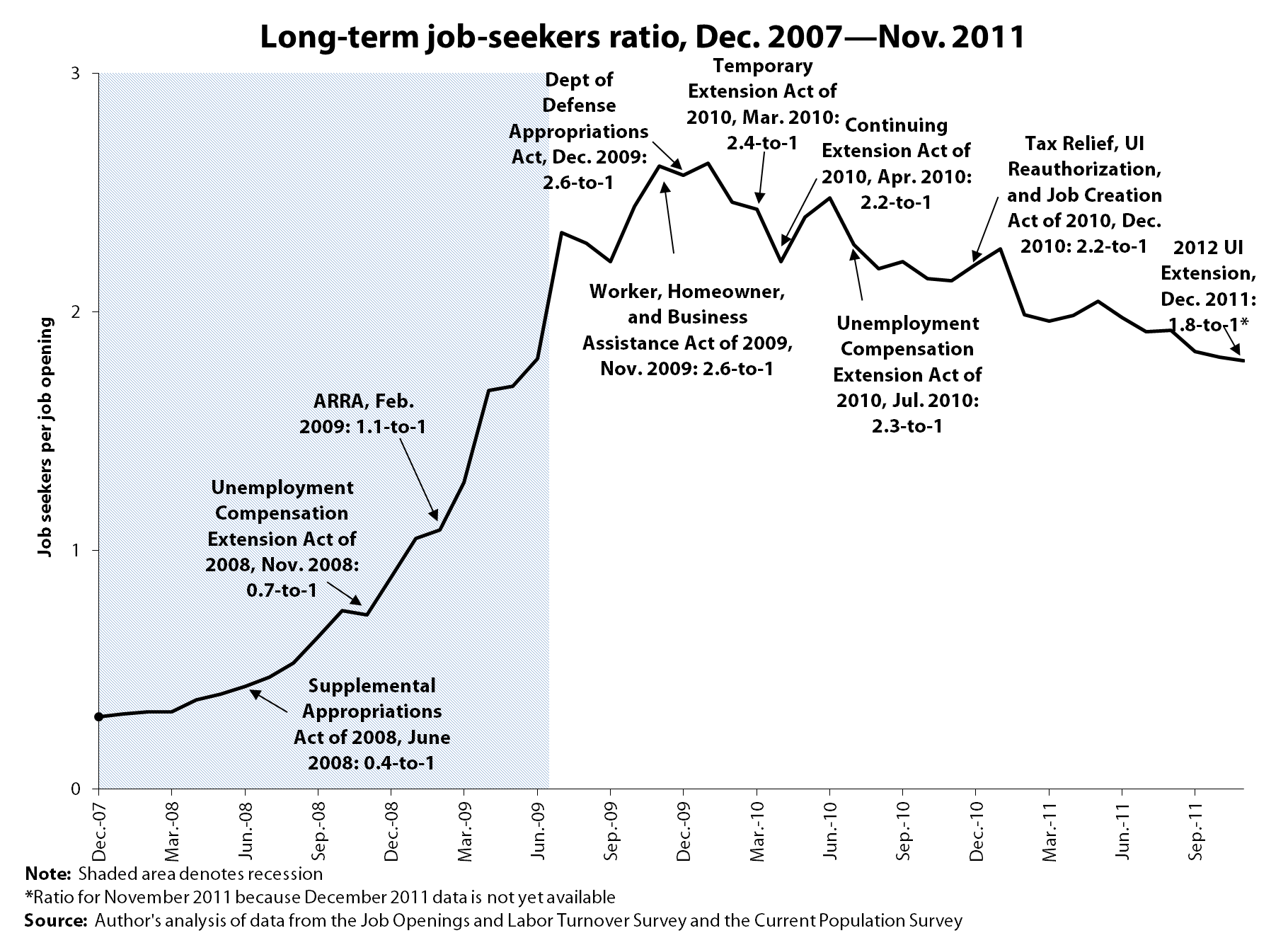It’s not time to cut back on extended unemployment insurance
Congress is debating whether to renew legislation that has extended unemployment insurance benefits for the long-term unemployed for up to 99 weeks (73 weeks of federal benefits beyond the regular 26 weeks of state-financed benefits). The decision should be consistent with the original decision to extend benefits, based on the condition of the economy and the likelihood that jobless workers will be able to find paid employment.
The unemployment rate, which was 8.3 percent in Feb. 2009 when the American Recovery and Reinvestment Act (ARRA) was enacted, and was 8.5 percent in Dec. 2011, is one measure, but not the best measure, of the need for extended benefits. The best measure is probably the ratio of long-term job seekers – the population that receives extended benefits – to available job openings. That ratio was 1.1 to 1 when ARRA put the 99 weeks of benefits in place and was still a much higher 1.8 to 1 in Nov. 2011.
This very high long-term job-seekers ratio indicates that the economy has not recovered enough yet to reduce the number of weeks of unemployment insurance benefits the jobless may receive. There are still more than 5.5 million Americans who have been seeking work for 27 weeks or more. Their ability to find work, to find employers willing to hire them after they have been unemployed for 6 months or a year, is greatly reduced.
Congress should reject Congressman Dave Camp’s (R-Mich.) legislation to eliminate 40 weeks of potential benefits or even 20 weeks, which some reports have mentioned as a compromise. Rep. Camp is off-base when he claims that 59 weeks of benefits is “a level consistent with prior recessions.” There has not been a single recession in the last 70 years that approached today’s levels of long-term joblessness. Both the number of long-term unemployed and the share of the unemployed who have been unemployed for more than 27 weeks are about double the levels of any other post-war recession.
Congress should renew the program of extended benefits as it is until the end of 2012.

Enjoyed this post?
Sign up for EPI's newsletter so you never miss our research and insights on ways to make the economy work better for everyone.